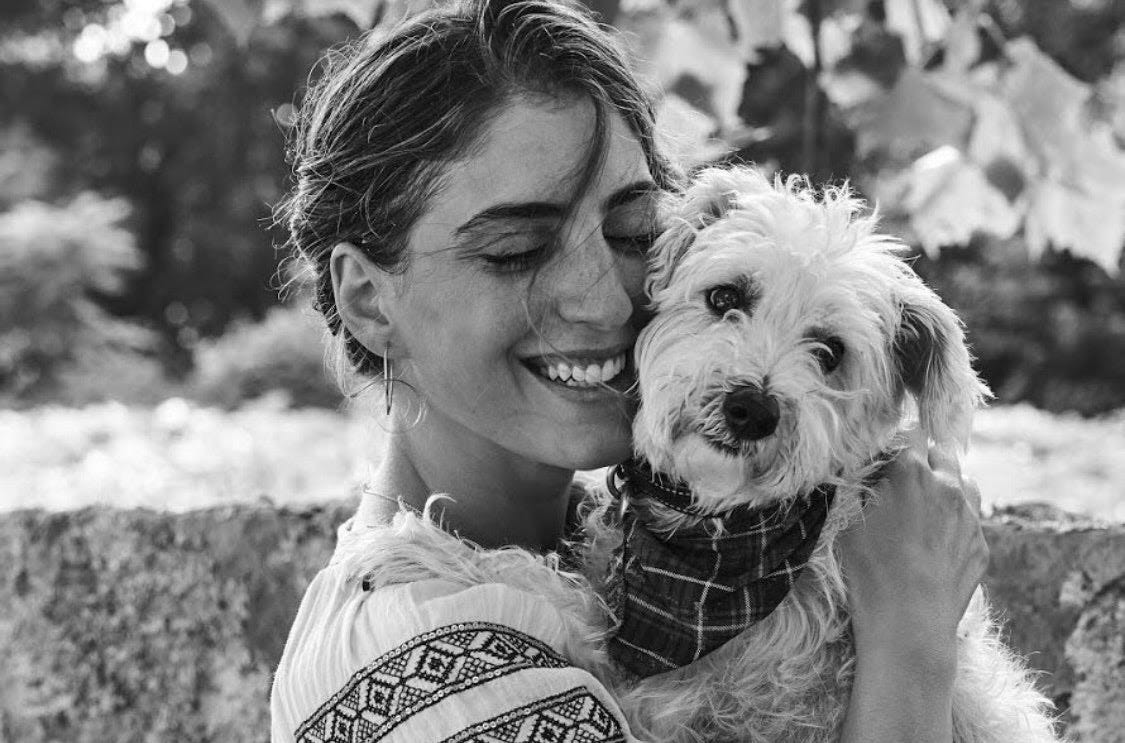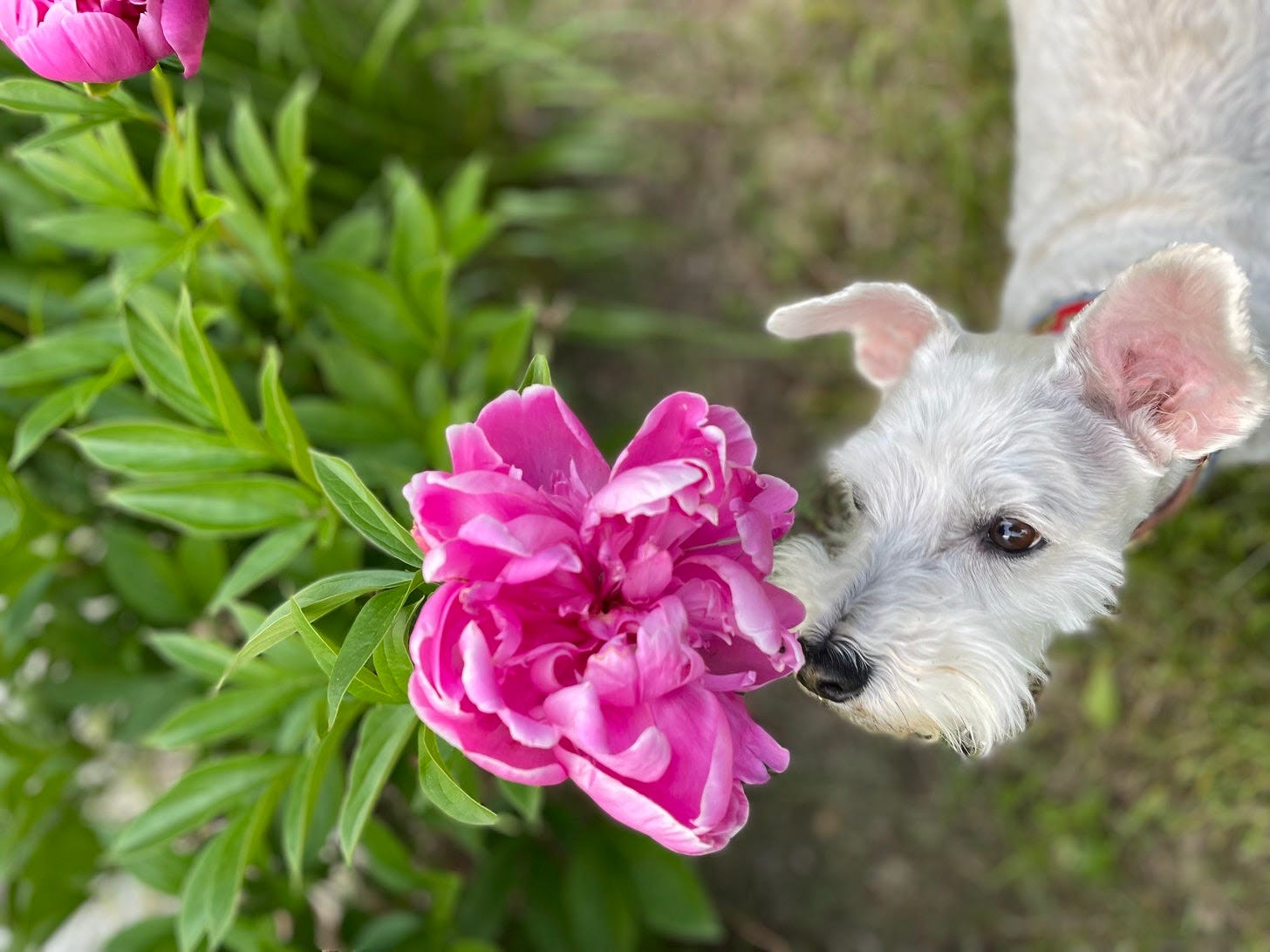On the Grace of Letting Go
(Or why we cannot fear death)
Suleika Jaouad is a favourite.
Recently, someone she loved to bits died.

I got to know Suleika through her deeply-felt newsletter The Isolation Journals, which, all through the pandemic, carried essays on rediscovering the meaning of life along with magical prompts for deep-diving inside to find consolations during those tough months.
It also took me to her book, "Between Two Kingdoms” which was gut-wrenching and beautiful at the same time. I quote GoodReads speaking about Suleika’s life and what led to the book -
"Between Two Kingdoms” is a tender, heartfelt exploration of loss and recovery, and about a road trip she undertook to meet a profound chronicle of survivorship and a fierce, tender, and inspiring exploration of what it means to begin again.
In the summer after graduating from college, Suleika Jaouad was preparing, as they say in commencement speeches, to enter “the real world”. She had fallen in love and moved to Paris to pursue her dream of becoming a war correspondent. The real world she found, however, would take her into a very different kind of conflict zone.
It started with an itch—first on her feet, then up her legs, like a thousand invisible mosquito bites. Next came the exhaustion, and the six-hour naps that only deepened her fatigue. Then a trip to the doctor and, a few weeks shy of her twenty-third birthday, a diagnosis: leukemia, with a 35 percent chance of survival. Just like that, the life she had imagined for herself had gone up in flames. By the time Jaouad flew home to New York, she had lost her job, her apartment, and her independence. She would spend much of the next four years in a hospital bed, fighting for her life and chronicling the saga in a column for The New York Times.
When Jaouad finally walked out of the cancer ward—after three and a half years of chemo, a clinical trial, and a bone marrow transplant—she was, according to the doctors, cured. But as she would soon learn, a cure is not where the work of healing ends; it’s where it begins. She had spent the past 1,500 days in desperate pursuit of one goal—to survive. And now that she’d done so, she realized that she had no idea how to live.
How would she reenter the world and live again? How could she reclaim what had been lost? Jaouad embarked—with her new best friend, Oscar, a scruffy terrier mutt—on a 100-day, 15,000-mile road trip across the country. She set out to meet some of the strangers who had written to her during her years in the hospital: a teenage girl in Florida also recovering from cancer; a teacher in California grieving the death of her son; a death-row inmate in Texas who’d spent his own years confined to a room. What she learned on this trip is that the divide between sick and well is porous, that the vast majority of us will travel back and forth between these realms throughout our lives. Between Two Kingdoms is a profound chronicle of survivorship and a fierce, tender, and inspiring exploration of what it means to begin again.
As Suleika fights her battle yet again, with further bouts of treatment, her indomitable spirit continues to give light, fight battles and reach out. And then her beloved dog Oscar died.
As a tribute, in a recent issue of The Isolation Journals, her dear friend, the writer Elizabeth Gilbert, wrote about the death of Suleika’s dog Oscar. In a short beautiful piece, Gilbert wrote about how there could be grace in death, and how we humans are saved time and again by animals who love us.
I give below an excerpt - and the link to the newsletter where you can read the entire essay.
“My favorite monk at the ashram where I lived in India taught me that dogs have such a short lifespan because it’s part of their loving service to us. They are here, among other reasons, to teach us how to die—because they are so good at it, and we are so bad at it. Dogs have no scary stories around death. (They know better. They know things we don’t know.) Dogs see all the fear and anxiety that we humans carry around about the subject of death and—loving us as they do—they take pity on us. Wanting to help, they volunteer to die early, as a way of saying: “Look! It’s not hard! Let me show you how! All you have to do is let go. Here, watch…”
This is exactly what Oscar did on Monday. He stopped eating, then he stopped walking. He let us know that he was near the end. And he gave us just enough time so we could gather together the people who loved him—me and our beloved friend Cat in person, and Suleika and her family on Zoom from the hospital room at Sloan Kettering. The last voice he heard was Susu’s—calm and brave. He could not have been more serene as he gently exited our world. He died in my home, without pain or fear. He died as he lived: swaddled in cashmere and surrounded by women who adored him.”





when I look around me I find I am so blessed. gives me the strength and reason to come out of my personal tragedy, start living the life I always wanted to.
Gives me a lot of hope in this unsure journey of life.